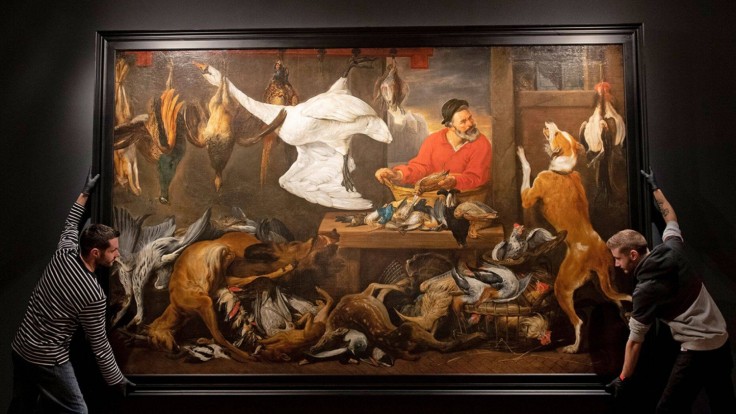
Several students at Cambridge University lost their appetite over a 17th-century oil painting which hung in the school's dining room. The museum which loaned it out, as well as PETA, is now focusing on the matter.
Flemish artist Frans Snyders' painting entitled "The Fowl Market" portrays a butcher standing among several dead animal carcasses and seemingly preparing a selection of fowls to eat as a dog starts to enter the shop.
The controversial painting was on loan from the Fitzwilliam Museum of the university, where it has since been returned and exhibited as part of the "Feast & Fast: The Art of Food in Europe", an exhibit for 1500-1800 pieces of masterpiece.
It was banned from the Hughes Hall dining room last month after concerns raised by vegetarian and vegan students.
The Fitzwilliam Museum explained in a statement that while perhaps unbelievable, or indeed offensive to modern eyes, all these birds and beasts were available for consumption in early modern Europe by wealthy diners. The management added that Frans Snyders only illustrated it in the gigantic workshop version of The Fowl Market painting.
Nevertheless, the history of the artwork did little to soothe the stomachs of plant-based students, who allegedly protested about the subject and the gruesome portrayal of dead animals.
A museum spokesperson said some diners couldn't eat because it was on the wall. It was found slightly repulsive by people who don't eat animal meat. They are waiting for it to come down. The curators of the exhibit agreed to remove the painting, citing "contemporary questions about our relationship with food."
The spokesperson added that, as much as a dietary choice, most people turn to vegetarianism and veganism as humans reconsider a relationship and care for animals in an industrialized world.
PETA shared in a statement that they found the move unsurprising. The statement noted that young people today go vegan in droves, and PETA is not shocked that Cambridge University, one of PETA United Kingdom's 10 Vegan-Friendly Universities, has students who care about animal welfare and don't want to see carcasses on their tables or walls.
The museum also reported that the exhibit-which also includes a table set up showing the money, status and power with the variety and rareness of the dishes included however a multitude of meat, fish, fruit and vegetables, including intricate pies, frequently golden, and crowned with high-status hunted birds such as swans, pheasants, partridges, and peacocks-was very well-received by tourists.
The explanation for the removal of the painting caused some backlash on social media, but the uproar was dismissed by Hughes Hall bursar Victoria Espley, noting that the university routinely removes and restores different artworks. The piece is now expected to be shown in an exhibit on veganism and vegetarianism history.
Running until April 2020, the aim of the exhibit is to discuss the relationship between humans and animals as their care and environmental concerns in general remain the interest and passion of humans.
The club also arranged vegan versions of "formal hall," a two-week college dinner where gowns are not unusual and jackets and ties are required, both before and after the Snyders painting came down.
© 2025 University Herald, All rights reserved. Do not reproduce without permission.








